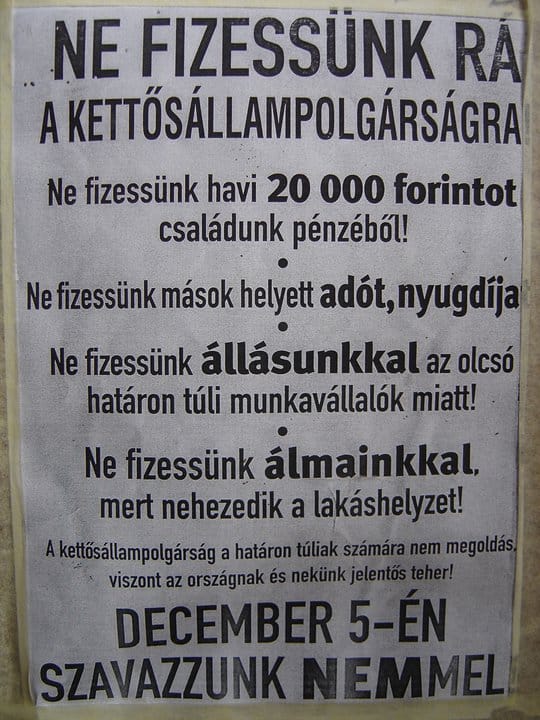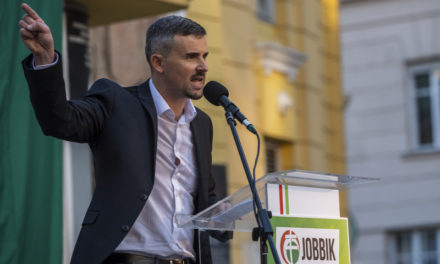The left-wing parties have a contradictory attitude towards Hungarians across the border. They eagerly embrace the cause of marginal and distant minorities, but say no to national politics.
Ferenc Gyurcsány and his government already campaigned against those living across the border in the referendum on dual citizenship in 2004, and his party has since then continuously attacked Hungarians living in the diaspora, as it criticized their right to vote in several cases, and would also take away vaccines against the coronavirus from them. In connection with the 101st anniversary of the Trianon peace decree, it is worth examining how the left relates to Hungarians across the border. Analysis of the End of the Century.
For the Gyurcsány association, political gain is more important than the unity of the nation.
Based on the expressions of the Hungarian left-wing parties, it is clear that they do not have a clear and consistent support policy for foreigners. The most hostile attitude is characteristic of Ferenc Gyurcsány and the Democratic Coalition he leads. Since 2004, campaigning against Hungarians trapped outside the borders has been an integral part of the former Prime Minister's policy. It is worth noting that Ferenc Gyurcsány previously complained that Ukrainian citizens were registering en masse in Hungary's border villages in order to benefit from the services of the Hungarian social care system.
THE UNBASED CREATION OF HYSTERIA SERVES THE PURPOSE OF FERENC GYURCSÁNY TO TURN PUBLIC OPINION AGAINST HUNGARY ACROSS THE BORDER - IN THE HOPE OF GAINING POLITICAL BENEFITS.

Poster of the 2004 referendum/Source: Origo
On the left-liberal side, however, it can be observed that Momentum does not have a characteristic cross-border policy based on national interests, which is regularly seen in the party's expressions. In the past period, Momentum's politicians have campaigned alongside their European sister parties active as members of Renew Europe in the Highlands and Transylvania, as opposed to Hungarian parties representing Hungarian interests across the border. This is how Katalin Cseh campaigned for the presidential candidate of the sister party Renew Europe in the 2019 Romanian presidential election, and Anna Donáth stood for the liberal Progressive Slovakia party at a 2019 campaign event in the highlands.

Source: Origo/MTI/Tibor Illyés
Since 2010, the country has celebrated National Unity Day every year on June 4, the anniversary of the Trianon mutilation. By creating a law, the Parliament declared that the members of Hungarians beyond the border are also part of the unified Hungarian nation. Togetherness is above state borders, and its reality is a defining element of the self-identity of Hungarians. In addition to the governing parties, Jobbik also voted for the law, but the left voted against it.
With regard to the alliance between Ferenc Gyurcsány and Jobbik, it is noteworthy that in recent years the politics of the left-wing parties and Jobbik have been characterized by rapprochement, and finally Jobbik moved from the national side to the left-wing coalition and, under the command of Ferenc Gyurcsány, will run on the same list in the next year's election.
ALTHOUGH THE RIGHT WAS STILL SUPPORTING THE POLICY OF NATIONAL INTEGRATION IN 2010, THE NATIONAL POLICY OF THE PARTY HAS SINCE LOST ITS POLITICAL FACE AND ALIGNED TO THE LEFT, GIVING UP ITS CHARACTER OF SUPPORT FOR ACROSS THE BORDER.
Today, the ex-radical force has changed to such an extent that it does not have any tangible message to Hungarians abroad. In addition, it can also be stated that although Ferenc Gyurcsány comments on issues concerning the rights of Hungarians across the border with a variable habit, his party's second- and third-line politicians are characterized by a regularity, according to which - in the hope of gaining votes - they repeatedly attack Hungarians abroad. The best example of this is the statement of Ágnes Vadai, in which she questioned the number of dual citizens across the border who took the vaccine from the Hungarian stock, and another prominent politician of the party, Gergely Arató, reflected on the fact that she would revoke the voting rights of dual citizens.
Overall, it can be concluded that while the civilian government is working on healing the wounds of Trianon and on the policy of peaceful national reunification across borders, until
IN PAST DECADES, THE LEFT HAS NOT BEEN CAPABLE OF BUILDING A CHARACTERISTIC NATIONAL POLICY OR REPRESENTATION OF IT, AND IT IS CLEARLY VISIBLE THAT THEY DO NOT HAVE THE INTENTION OR THE EXPERTISE TO CHANGE THIS.

Péter Jakab, Ferenc Gyurcsány and András Fekete-Győr/ SOURCE: ORIGO
And Jobbik's unnatural alliance with the left requires that Péter Jakab's party abandon its originally advocated national policy, which it has clearly already fulfilled.
Source and photo: Origo.hu












